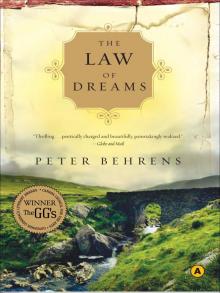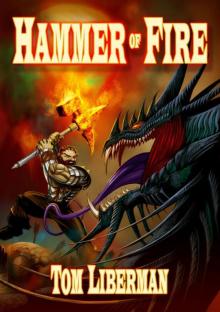The Law of Dreams


Author: Peter Behrens
Category: Other3
Published: 2006
Series:
View: 175
Read OnlineFrom Publishers WeeklyScreenwriter Behrens follows his 1987 story collection, Night Driving, with an ambitious epic that follows a hapless wee lad from the rotten potato fields of 1847 Ireland to a New England horse ranch. Fergus O'Brien, the teenage son of a tenant farmer, is sent to a workhouse after his parents are murdered. He quickly escapes, joins a band of brigands and, after raiding his former landlord's farm, drifts to Dublin and then to Liverpool, where he is primed to work as a "pearl boy" (read: male prostitute). He hits the road again, this time settling in Wales, where he works on a rail line and meets Red Molly, a married woman who becomes his lover and traveling companion to America, where he plans to become a horse trader. The book veers dangerously close to melodrama on more than a few occasions, and Fergus, for all the contretemps encountered and indignities suffered, remains thin and unconvincing as a narrator. But readers may be able to overlook Behrens's authorial missteps and enjoy the sprawling, cinematically rendered immigrant story. (Sept.) Copyright © Reed Business Information, a division of Reed Elsevier Inc. All rights reserved. From The New YorkerBehrens's impressive, swiftly paced saga tracks the life of an Irish boy after his family dies during the Great Potato Famine. Fifteen-year-old Fergus O'Brien takes up with a group of child bandits in Limerick, then makes his way to North Wales, where he works as a "tip boy" (a dangerous job that involves emptying carts of earth being cleared for the railroads). By the time he sets sail for Canada, hoping to make a living as a horse dealer, it is hard to believe that only a year has passed, such is the variety of his experience. In scope and subject, Behrens's work recalls Liam O'Flaherty's epic novel "Famine"; both writers have a stark style admirably suited to conveying the horrors of starvation and despair. But Behrens's language also has a visceral rhythm, and his similes meld the humble with the lyrical: whales rise "hissing" in a river, light "stutters" off an iron roof. Copyright © 2006 Click here to subscribe to The New Yorker
 Mr. Shakespeare's Bastard
Mr. Shakespeare's Bastard Reckless: A Dark Romance (The Masters Book 1)
Reckless: A Dark Romance (The Masters Book 1) The Alpha's Heart
The Alpha's Heart Sleuth on Skates
Sleuth on Skates Creation Mage 3 (War Mage Academy)
Creation Mage 3 (War Mage Academy) Love's Edge (A Dark Erotic Romance Novel)
Love's Edge (A Dark Erotic Romance Novel) Dragon of the Mangrooves
Dragon of the Mangrooves The Hammer of Fire
The Hammer of Fire